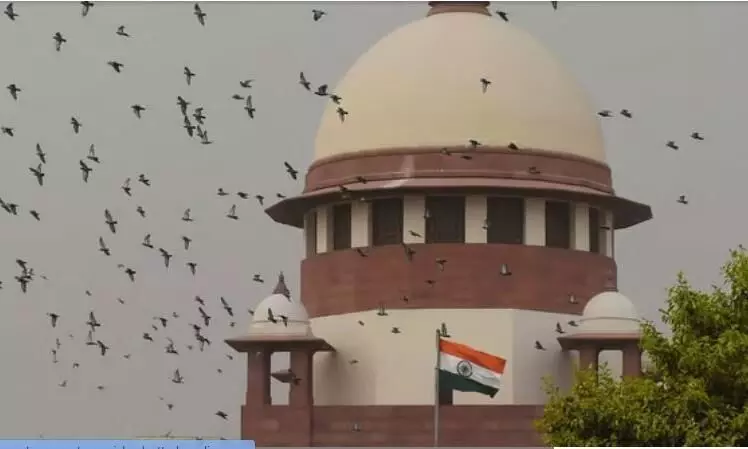
Supreme Court questions ED on withholding key documents from accused during bail proceedings
text_fieldsThe Supreme Court on Wednesday raised serious concerns about the Enforcement Directorate’s (ED) practice of denying accused individuals access to essential documents during bail proceedings, questioning whether this could infringe upon their fundamental right to liberty under Article 21 of the Indian Constitution.
A bench comprising Justices Abhay S Oka, Ahsanuddin Amanullah, and Augustine George Masih reserved its judgment on an appeal concerning the provision of incomplete or illegible documents in a money laundering case.
The court scrutinized the ED’s stance, suggesting that withholding crucial documents might undermine the accused's rights.
Justice Oka pointedly asked, "If the ED possesses a decisive document, yet it is not made available to the accused after the chargesheet is filed, doesn’t this violate their rights under Article 21?"
Additional Solicitor General (ASG) S V Raju, representing the ED, argued that while the provision of documents is not opposed, an accused cannot demand a broad and speculative inquiry into all documents unless they are necessary. He maintained that accused individuals should not be granted access to every document on such a basis.
However, the bench expressed skepticism about this rigidity, with Justice Oka questioning whether such an approach serves justice. He remarked, "Times have changed. Can we justify being so rigid that a person facing prosecution cannot access documents? Is this justice?"
The court also noted that if an accused seeks documents not included in the chargesheet and then approaches a high court, the court has the authority to quash the proceedings. The bench emphasized that during bail hearings, there is no restriction on considering a plausible defense based on documents not in the accused's possession.
The Supreme Court further criticized the ED’s practice of withholding documents, questioning, "You seize thousands of documents and rely on just 50. The accused might not remember every document. You may have a decisive document, but you refuse to provide it due to PMLA technicalities. Is this fair? Why can’t there be full transparency?"
ASG Raju responded by noting that the accused already has access to a list of necessary documents. Justice Oka countered this by highlighting modern document management techniques, asserting that large volumes of documents can be quickly scanned and made available, eliminating any excuse for delays in trial proceedings.























